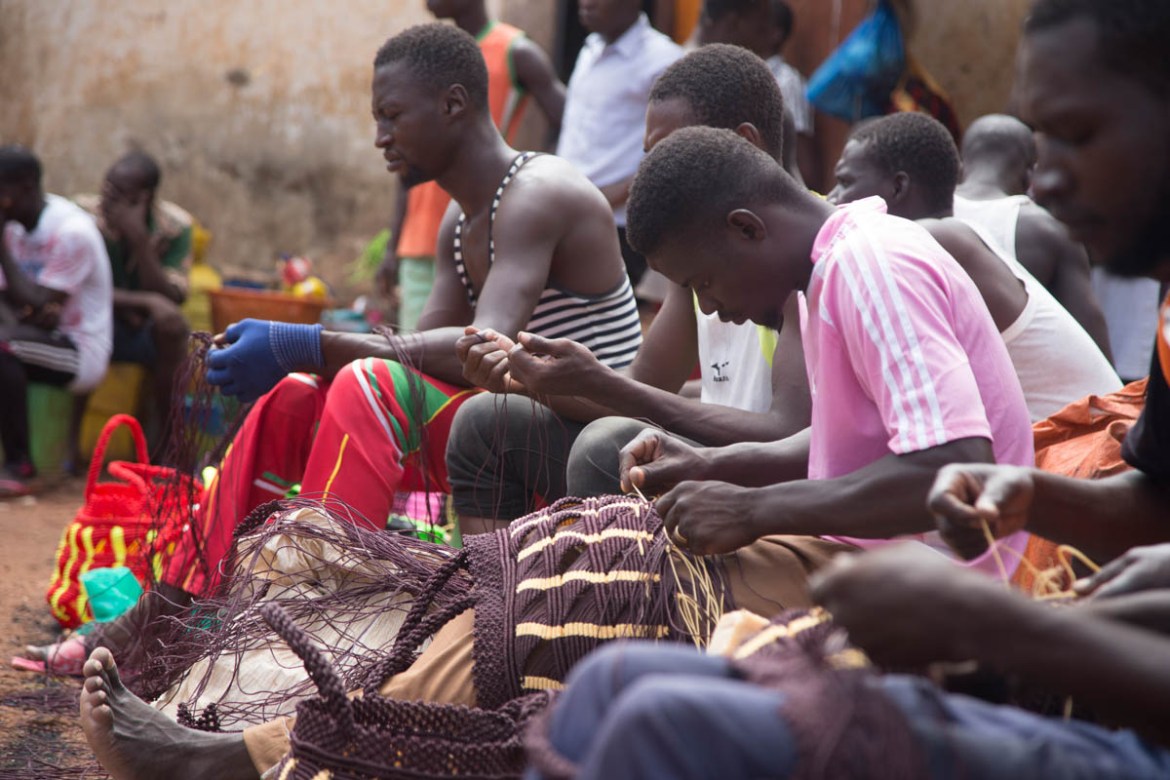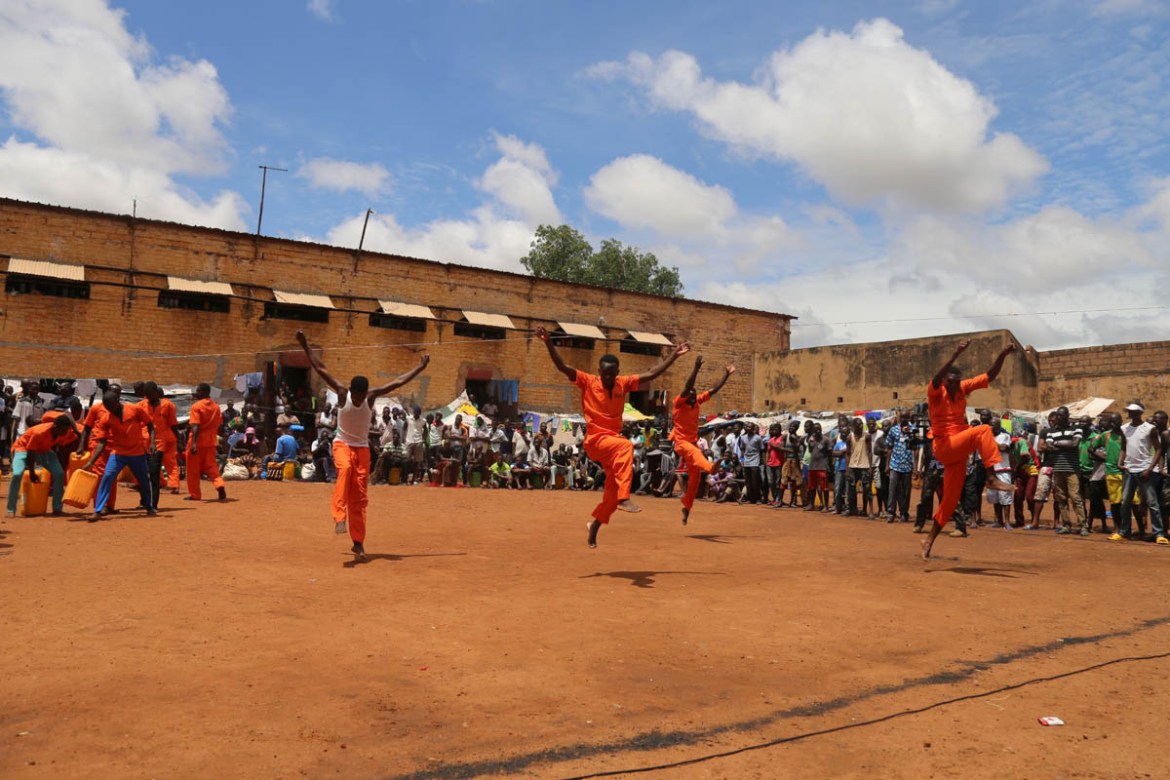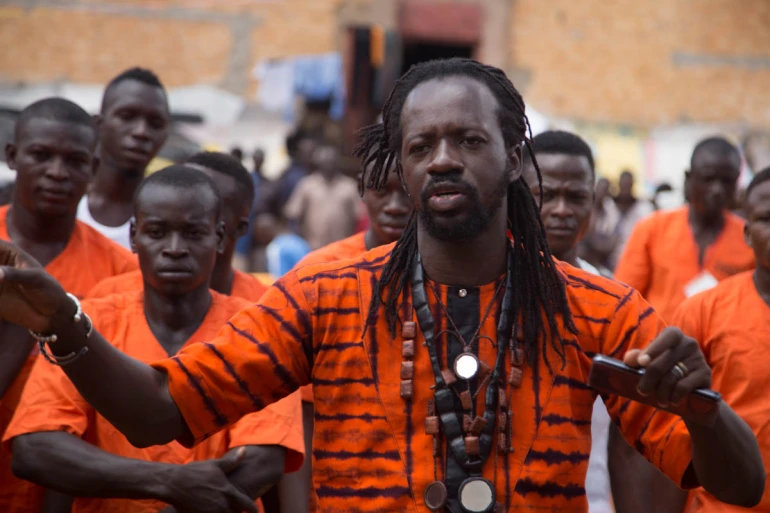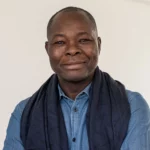Imagine you had the means to pay the medical bills of your ill son but the doctors refuse to treat him because of strike action.
The pain, anger and sorrow that resulted from the death of his 3-year old son, Cyril, was enough to break Aguibou Bougobali Sanou, a professionally trained dancer who found healing in what he did best – dancing.
According to him, this is one of the things “no word can describe.” He was tempted to kill the doctors who looked on when his son was dying in revenge. However, he turned to dance to soothe the pain as his son died in a second hospital, away from the doctor that refused to attend to his son.
“One of my dreams was to grow up at the same time with my son. That’s why I decided to give birth earlier, I was 20 years old. Most people said it was an accident but I said it was not an accident because I decided to make a kid,” he said in an interview on BBC’s Outlook.
He wanted to spend most of his life with his son who he lost to Typhoid fever.
It was his first-hand experience that motivated him to share the therapeutic power of dance with his inmates at Bobo Dioulasso prison. “I do nothing but dance. It has given me everything,” says Aguibou, who hopes it will do the same for the prisoners.
Aguibou trained in France and his native Burkina Faso and went on to be the founder of one of the largest dance festivals in West Africa. He has made it to the semi-finals of Africa’s Got Talent and has so far performed in 38 countries.
“The dancer thieves” as he referred to them were all prisoners who he wanted to teach that life does not end immediately the prison gates shut. Aguibou wanted them to become a family, supporting each other through the hardships of prison life and into a future where they do not go back to a life of crime.
Bouba as he is commonly known has given himself the task of teaching inmates of Burkina Faso‘s overcrowded Bobo Dioulasso prison. He believes this will teach them how to express their emotions, confront their pasts and embrace their futures through dance. The hope he is giving them is something that is in short supply in the cells.
“Everybody can dance, I believe that. You feel well and bring new energy,” he said. To him, when he starts dancing, he is “in connection with something else, I’m not alone anymore”.
Among the prisoners he was hoping to restore were men who have been accused or convicted of crimes ranging from theft to murder – some of whom had been sentenced to life in prison since the death penalty was abolished in Burkina Faso in 2018.
There were also those whose case files were lost in the country’s overwhelmed judicial system. The poor accommodation of these people was such that some resorted to sleeping in toilets.
“The day I saw their toilets I was just weeping like a kid and wondered how people could live in this condition. They were not clean at all.

“They get easily sick and get skin diseases. Sometimes they are treated lesser than animals,” he lamented.
In spite of all the deficiencies in the prison system, dance is offering the possibility of a second chance for social reintegration. The dance skills they learn could stop them from re-offending once they are released and even the support and acceptance of families who may have rejected them.
In the process, these dancing prisoners become a family and learn that life does not necessarily stop at the prison gates. Bougobali Sanou went from performing for the prisoners to teaching them how to dance.
“I first realised how I saved myself through dance and how I feel good when I’m dancing so I realized that definitely, it can heal. When I brought my first performance over there, I saw the reaction they had, they were happy although they did not understand the dance I am doing but they feel it, they shout and react,’ he explained.
When the dance workshop for the inmates started, they were initially “shy and didn’t know what we were going to do’.

“When someone is shy, before the end of the first day, that person starts jumping, smiling and improvising, you realise something has changed,” he recalled the changes that happened.
“I sat them around a round table and I asked them to share their stories with me,” Bogobali recounted. Finding out the various crimes they committed did not deter his focus. “I asked myself what pushed someone to kill his neighbour?

He noted that a large percentage of them were interested in how to use their skills in dance to earn money.
Bougobali and his ‘dancer thieves’ rehearsed for a week and on the day of the main performance, they had to dance for dignitaries whom he had invited – a performance they titled “A Second Chance”.
“They were nervous but I was excited. The performance was so emotional, it was about their story, what they did to be there. We tried to work on that and improvised – then the redemption because they all regret what they did and they,” he said.
This performance was all it took to keep their zeal alive and their passion burning. They wanted the project to be continued.
Bogobali stated that after some of the dancers were released, they were keen to continue dancing and even wanted to join his dance company.
















